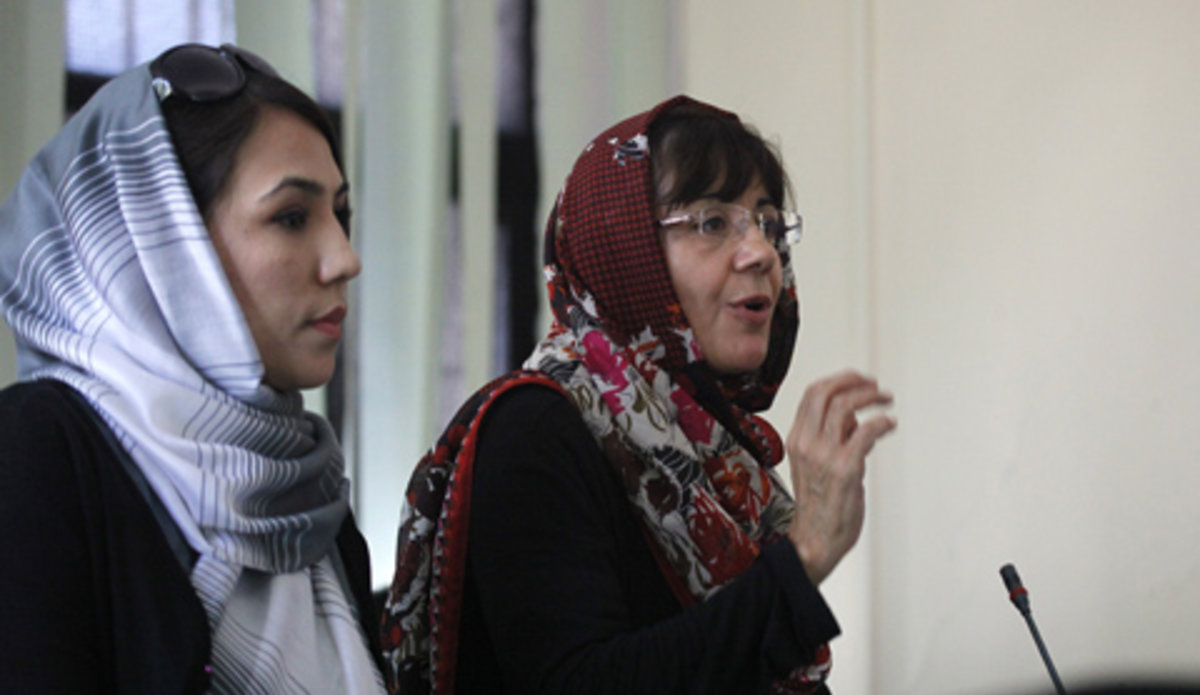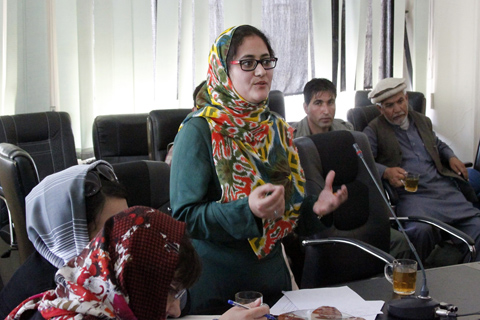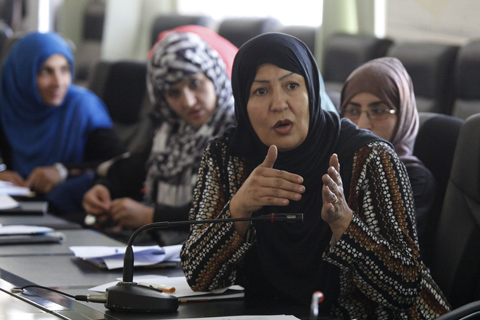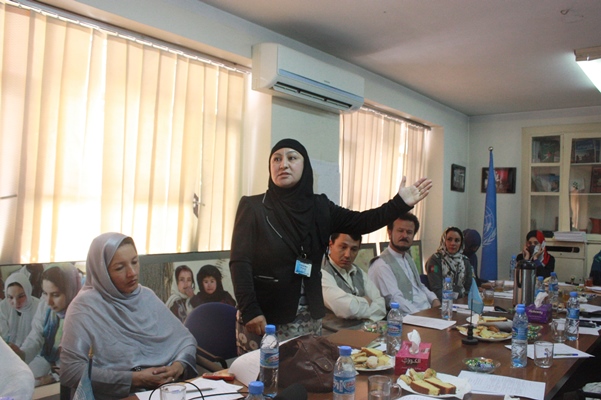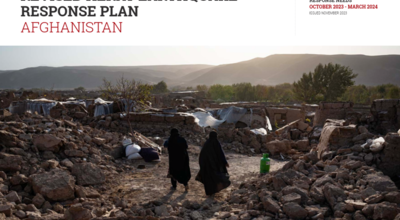Afghan women’s progress and challenges highlighted at UN-backed gatherings
KABUL - Afghan women and girls have made significant progress over the past decade in the political and social spheres, however insecurity, harmful traditional practices and a lack of economic opportunities are still affecting their progress.
These views were expressed by the participants of an event held in the central province of Kapisa, organized by the Human Rights Unit of the United Nations Assistance Mission in Afghanistan (UNAMA), along with women’s groups, as part of its “Open Days” series of events.
The Open Days are aimed at assessing progress in the lives of Afghan women and girls since the passage of UN Security Council resolution 1325 in 2000. The resolution reaffirms the important role of women in the prevention and resolution of conflicts, peace negotiations, peace-building, peacekeeping, humanitarian response and in post-conflict reconstruction and stresses the importance of their equal participation and full involvement in all efforts for the maintenance and promotion of peace and security.
Under the theme ‘Women’s Participation in Political and Peace Processes – Progress and Gaps,’ the UNAMA-backed events being held around the country provide a forum for dialogue between UN officials and women’s organizations.
At the Kapisa event, attended by women from civil society, the provincial council and government institutions, the participants expressed satisfaction over women’s progress in the political field, pointing to the presence of women in both the houses of Afghanistan’s parliament, provincial councils and political parties, as well as their role as voters and candidates in the country’s recent presidential elections.
“We did not have 100 per cent security on the election days, but we went out and cast our votes,” one of the participants, a teacher at a girls’ high school, Mahbooba Salehi, told the gathering.
“In Nijrab district, we had low turnout in the morning but in the afternoon a large number of women flocked to the polling stations – we even ran short of ballot papers,” said another participant, a civil society activist and teacher, Farkhunda Rehmani. “Women also received the highest number of voting registration cards in this district.”
The participants voiced agreement that women have played an active role in highlighting Afghanistan’s peace process to the general public, but especially to other women.
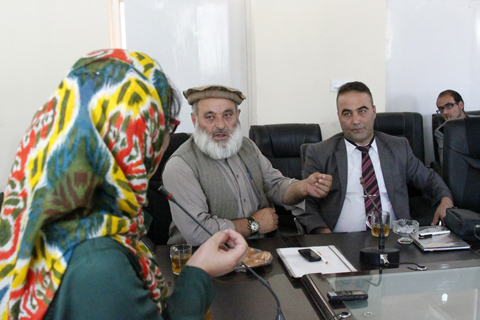
In his remarks, the head of the Provincial High Peace Council, Momin Khan Muslim, said that the Council’s Women’s Committee had gone to all of the province’s secure areas to hold meetings with local women to raise awareness of the peace process.
However, another participant, civil society activist Gulalai Nasiri, said that the role of women was confined to awareness-raising and stressed the need for an expanded role. “We can achieve peace only through education and knowledge,” Ms. Nasiri added.
A female member of Kapisa’s Provincial Council, Razia Sadaat Habibi, emphasized the need to increase the presence of women in government and the creation of more job opportunities for them so that they can be self-reliant.
The head of the province’s Women’s Affairs Department, Saifora Kohistani, said a society dominated by men and illiteracy were major challenges to Afghan women’s progress. Another participant, a law student, Feroza Safi, echoed Ms. Kohistani in her comments, noting that the key challenges to women’s progress in Afghanistan included a lack of capacity, low awareness of civil rights, insecurity and harmful traditional practices.
In a similar event in the northeastern province of Kunduz, participants discussed key achievements of Afghan women, the drivers of positive changes for their part in society and major obstacles to their progress at the local level, as well as possible solutions.
In his opening remarks to the event, the head of UNAMA’s Kunduz office, Pavel Ershov, congratulated the participants on the completion of the recent presidential elections and the establishment of a new government, expressing appreciation of the role of women in the electoral process.
“Women’s participation in the political process was unprecedented in the history of Afghanistan,” echoed the Women’s Rights Officer at the local office of the Afghanistan Independent Human Rights Commission, Shafiqa Separ, in her comments.
“Today, women are lawmakers, members of provincial councils, ministers, provincial governors, mayors, district governors, governmental officials, journalists and civil society members,” she added.
Another participant, a civil society activist, Habiba Gulustani, criticized the government for not doing more to increase the role of women in the Afghan peace process.
“Though the UN Security Council’s resolution 1325 calls for an equal role for men and women in the mediation of conflicts, in Afghanistan, the topic of women’s involvement in the peace process is kept to a symbolic role,” Ms. Gulistani said.
At another Open Day event, this one held in the eastern city of Jalalabad, the capital of Nangahar province, which attracted participants from there as well as the neighbouring provinces of Kunar and Nuristan, participants highlighted local women’s achievements in the face of various obstacles.
“Over the last 12 years, Afghan women have achieved a lot in different fields such as education, social activities and participation in the political process,” said Nasima Sadat from neighbouring Kunar province. “Yet, in spite of all our success, we have to continue struggling for our rights as some our sisters are still subject to violence – I hope the new elected government will continue working for empowering women to give them their rights.”
“In the past, Nuristani women were obliged to work hard as farmers in agricultural fields,” said another participant, Nadia Faizan, also from Nuristan. “But, luckily, now, as a result of awareness campaigns for women rights, launched by the government with the support of the international community, men are not forcing women to work in the field and girls are given the chance to study in school.”
 UN
UN
